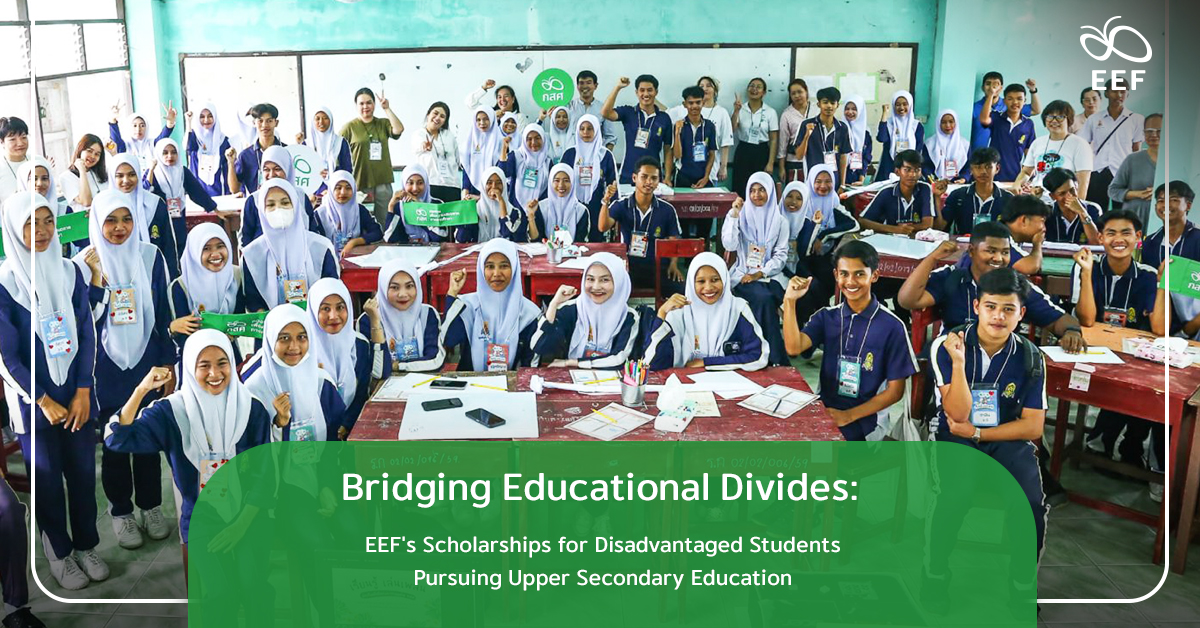
During the crucial transition period from lower to upper secondary education, the question of “What comes after Grade 9?” looms large. For economically disadvantaged students, however, the path to continuing education beyond lower secondary school might seem insurmountable due to financial constraints. Research by the Equitable Education Fund (EEF) Thailand sheds light on a stark contrast in educational opportunities between underprivileged students and their more privileged counterparts. Only 42.7% of economically disadvantaged students have the chance to pursue education beyond compulsory schooling, compared to 76.1% of the wealthiest students. Additionally, nearly half (47%) of Grade 9 recipients of Equity Funds provided by the EEF, out of approximately 90,000 students, may not pursue further education in 2023 due to financial constraints.
This sobering reality underscores not only the urgency of timely intervention to prevent these students from falling through the cracks of the educational system but also the long-term implications of limited access to education on their future prospects; without support, these students risk entering the low-income labor market, perpetuating a cycle of poverty and limited opportunities — and here steps in the Education Security System that goes beyond mere financial aid to encompass continuous monitoring of students’ progress, ensuring their retention within the educational system as well as their success in subsequent academic endeavours.
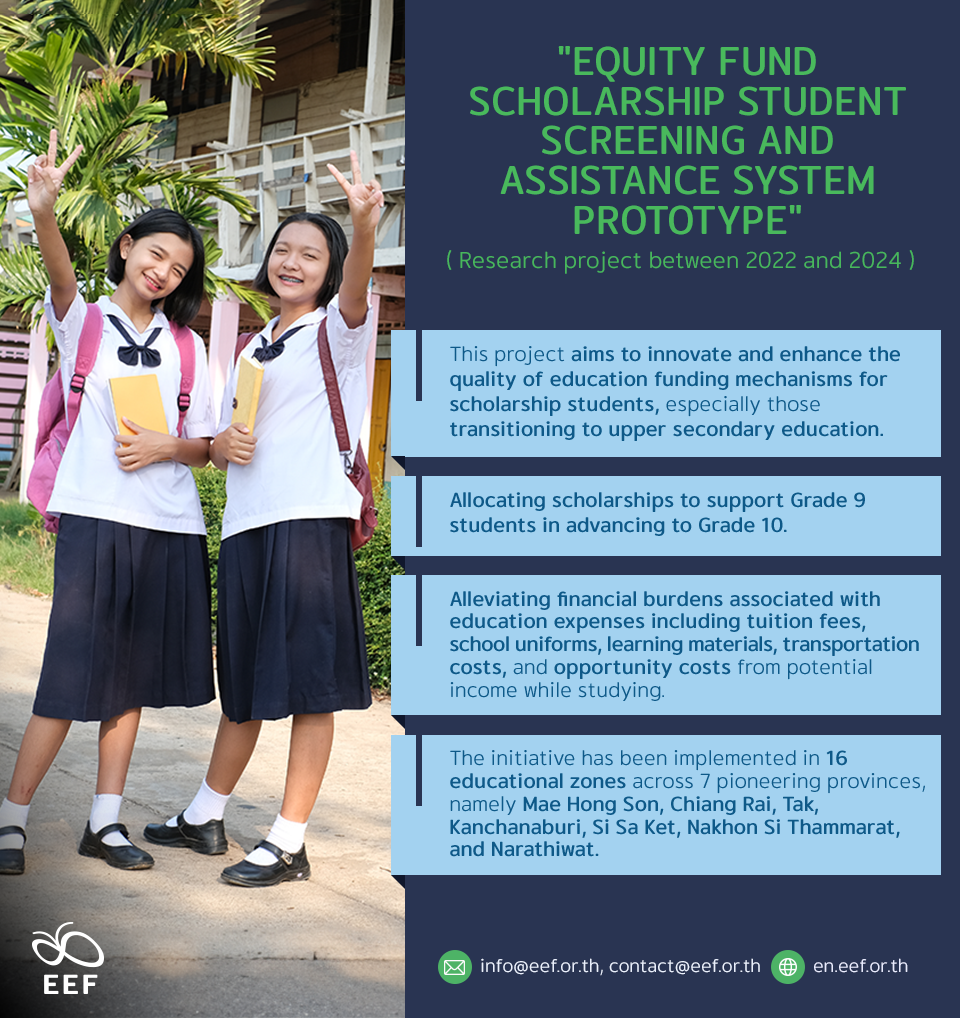
To address these disparities, the EEF initiated the “Equity Fund Scholarship Student Screening and Assistance System Prototype” research project between 2022 and 2024. This project aims to innovate and enhance the quality of education funding mechanisms for scholarship students, especially those transitioning to upper secondary education. The EEF has been allocating scholarships to support Grade 9 students in advancing to Grade 10, alleviating financial burdens associated with education expenses, including tuition fees, school uniforms, learning materials, transportation costs, and opportunity costs from potential income while studying. The initiative has been implemented in 16 educational zones across 7 pioneering provinces, namely Mae Hong Son, Chiang Rai, Tak, Kanchanaburi, Si Sa Ket, Nakhon Si Thammarat, and Narathiwat.
In the 2022 academic year, there were a total of 90,010 Grade 9 scholarship recipients, with 16,265 in the 16 educational zones of 7 pioneering provinces. In the 2023 academic year, the EEF has allocated special funds, including 5,000 scholarships, each valued at 6,000 Thai Baht annually or 3,000 Thai Baht per semester, to Grade 9 students aiming for Grade 10. The initiative launched from March 1st to 20th, 2023, with the EEF announcing the list of eligible recipients on cct.thaieduforall.org. Scholarship disbursements are scheduled for two instalments: 3,000 Thai Baht by March’s end and another 3,000 Thai Baht in the second semester.
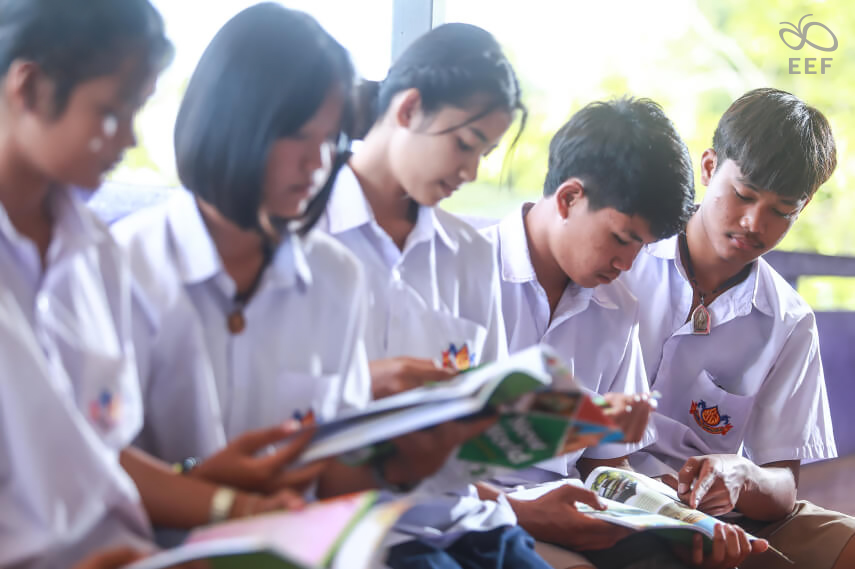
The research project employs a multifaceted approach to provide continuous educational opportunities, centering on engagement with affected students, teachers, and administrators. This collaboration enables the extraction of valuable lessons and the development of proposals to enhance educational opportunities for scholarship students. Concurrently, the project extends its reach beyond scholarships, establishing connections with other funds like the Student Loan Fund (SLF) to further support students in need.
Guidance counseling sessions, specifically tailored for Grade 10 transition students, play a vital role in ensuring a smooth educational transition. These sessions address students’ concerns and challenges, fostering their confidence and paving the way for continued success. Simultaneously, the project addresses the financial implications of transitioning to upper secondary education, advocating for measures to alleviate financial burdens such as subsidies for tuition fees and transportation costs.
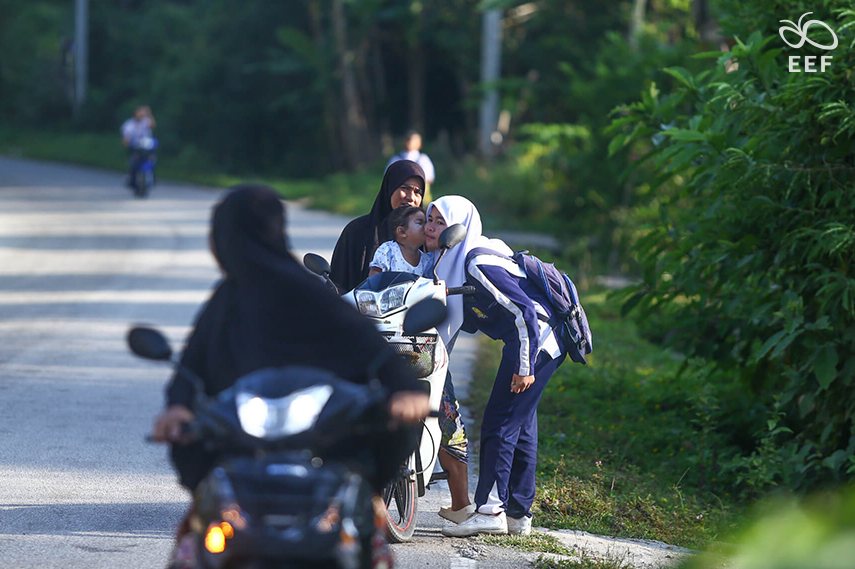
Moreover, the project actively engages with parents and community members to foster an understanding of the importance of higher education. By shifting perspectives and highlighting the long-term benefits of investing in education, it aims to break the cycle of poverty and create opportunities for disadvantaged students. In tandem, the project collaborates with stakeholders to nurture educational pathways tailored to individual students’ potential and circumstances.
Lastly, the project facilitates the exchange of experiences among guidance counselors from different schools, providing insights into best practices and informing policy discussions. Through collective efforts, including engagement with stakeholders and policy advocacy, the project aims to bridge the gap in educational access and lay a foundation for skill development and enhanced quality of life for economically disadvantaged students.
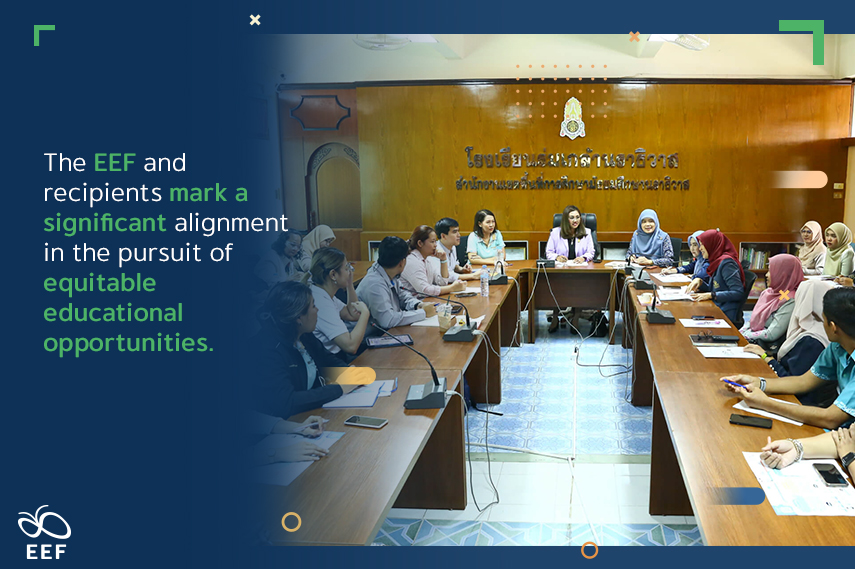
The convergence of perspectives and demands between scholarship providers, such as the EEF Thailand, and recipients marks a significant alignment in the pursuit of equitable educational opportunities. For providers, there is a recognition of the systemic barriers faced by economically disadvantaged students, prompting initiatives to allocate resources and implement programs aimed at breaking down these barriers. On the other hand, scholarship recipients view these opportunities as vital lifelines, representing not only financial assistance but also symbols of hope and empowerment. Their aspirations for continued education align with the providers’ mission, creating a mutually beneficial relationship where both parties work towards the common goal of expanding access to education and breaking the cycle of poverty.
This alignment holds profound implications for the educational landscape and society at large. By bridging the gap between privilege and disadvantage, it fosters a more inclusive and diverse learning environment, enriching the educational experience for all students. Moreover, it lays the foundation for long-term societal change, as educated individuals contribute to economic growth, social stability, and innovation. As scholarship providers and recipients collaborate to nurture talent and potential, they not only address immediate financial needs but also pave the way for a future where every individual has the opportunity to thrive and contribute meaningfully to their communities.
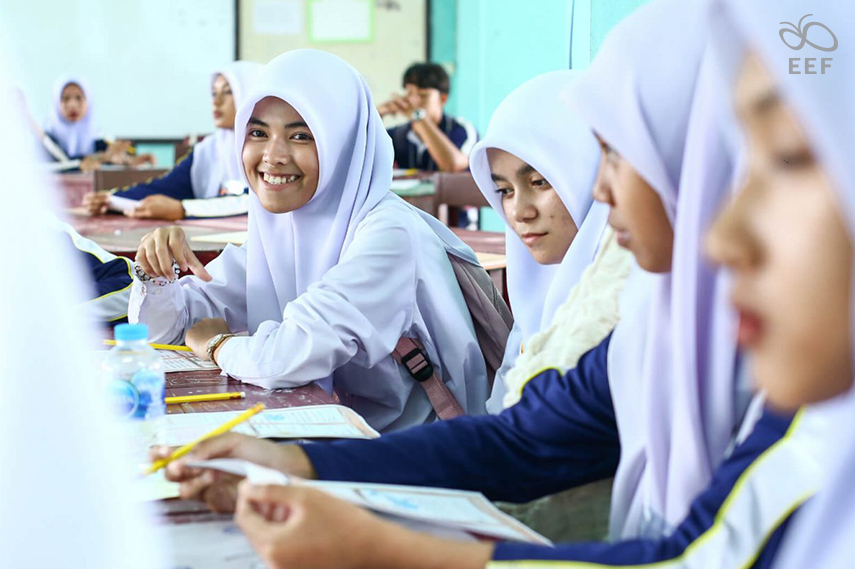
Over the span of four years, the Equitable Education Fund (EEF) Thailand has steadfastly allocated Equity Fund scholarships, spanning from early childhood to lower secondary education. With unwavering confidence, the EEF believes these scholarships will stand as pillars for educational advancement, particularly empowering Grade 9 students from economically disadvantaged backgrounds to pursue further education. This initiative not only aims to narrow the gap in educational access but also endeavors to curb dropout rates during a pivotal phase of youth development. By doing so, it establishes a critical foundation for skills development and enhances the quality of life, laying the groundwork for future endeavors and fostering a brighter future for all.

